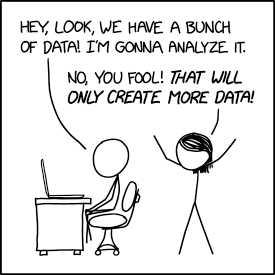Author Archives: Andrew Hutchings
It is the start of a new year, and with that brings the start of a new quarter, which means it is time for a contribution statistics update from us. I have lots of interesting data to walk you through this time, so let’s get started.
Year On Year Comparison
A good place to start would be to compare the previous year gone by with last year to see how we did. This table shows the number of organisations, contributors and commits to MariaDB Server in the last few years. The “Non-MariaDB” lines are contributors and commits by people who are not employed by MariaDB Plc or MariaDB Foundation.
…
Continue reading “MariaDB Contribution Statistics, January 2024”
We are in October, which means it has been 4 months since the last metrics report. It is, therefore, time for another quarterly metrics report (plus a bit more). The extra month was to allow for an announcement which is a prerequisite for this post, and it also means we are more or less aligned to real quarters. The major changes to this will come in the second half of this post, we have lots of additional data for pull requests. With that, let’s get started.
(more…) …
Continue reading “MariaDB Contribution Statistics, October 2023”
There was a recent request by Eric Herman, the Chairperson of the MariaDB Foundation board, to add the time to first meaningful response for pull requests to the quarterly contributor metrics I generate and blog about. I thought this was a really good idea. There are a few problems with this, the first being the definition of “meaningful response”.
Meaningful Response
A “meaningful response” would likely be a response that adds value and shows that the pull request is being reviewed. The most accurate way to do this would be to manually record this using a set of criteria that defines what kind of responses are meaningful.
…
We are well into 2023 now, the time has really flown. There have already been two major versions of MariaDB Server that have reach GA, and with those, many new contributions. As with each quarterly metrics release, the raw data is available in our metrics repo, along with the scripts and configurations to generate it yourself.
Project Tracking
We are tracking multiple MariaDB related projects at the moment, many of which are pulled in when you build MariaDB Server. These include:
- MariaDB Server – the server itself
- libmarias3 – an open source library to talk to Amazon S3 and related block storage services.
…
Continue reading “MariaDB Contribution Statistics, June 2023”
The MariaDB Foundation values our partnerships with our sponsors. Our partnership with IONOS allows us to get insight into how MariaDB Server is used and the direction it should take. As well as generally improving MariaDB Server in many different ways.
IONOS story
At CloudFest 2023, one of the first meetings we had was with Stefan Erkeling from IONOS. It was a very good meeting and it was great to see how much IONOS values our partnership. Stefan indicated in the meeting that there was a performance issue they were hitting and some advice was needed.
…
Continue reading “MariaDB & IONOS: Improving performance for hosting”
In a previous blog post, I gave an overview of the CloudFest Hackathon. At this event my team created a plugin for WordPress which added additional health checks for MariaDB. Since the Hackathon we have managed to get this plugin into the official WordPress plugin repository and are working on improving it.
About the plugin
The plugin is designed in a modular way with multiple parts that can be useful for WordPress administrators. The following is a breakdown of all the parts currently in the plugin.
Metrics
One of the core features is gathering metrics about the queries executed.
…
Coding standards are often as hotly debated as vim vs emacs and other developer arguments. Viewers of the show Silicon Valley will all know the “tabs vs spaces” scene and how passionate people can be about it. Whilst I do personally have a preference (I’m not sharing it here), I feel it is much more important that people stick to one standard for a code base.
Standards Story
Several months ago a new community developer for MariaDB Server sent me a message asking where to find our coding standards document. After a bit of searching I realised we did not have one, and if we want to onboard new developers we definitely should have one.
…
Back in December, we asked for your feedback on implementing a code of conduct in the MariaDB Server community. We have seen some great feedback and observations from this and today we are have published version 1.0 of our code of conduct.
Feedback
The feedback we have received has been generally positive both when it comes to implementing a code of conduct in general, and to the content of the text.
That said, it was suggested by Brian Andrus that we better define “inflammatory language”; this is something we actually discussed internally prior to the draft content.
…







